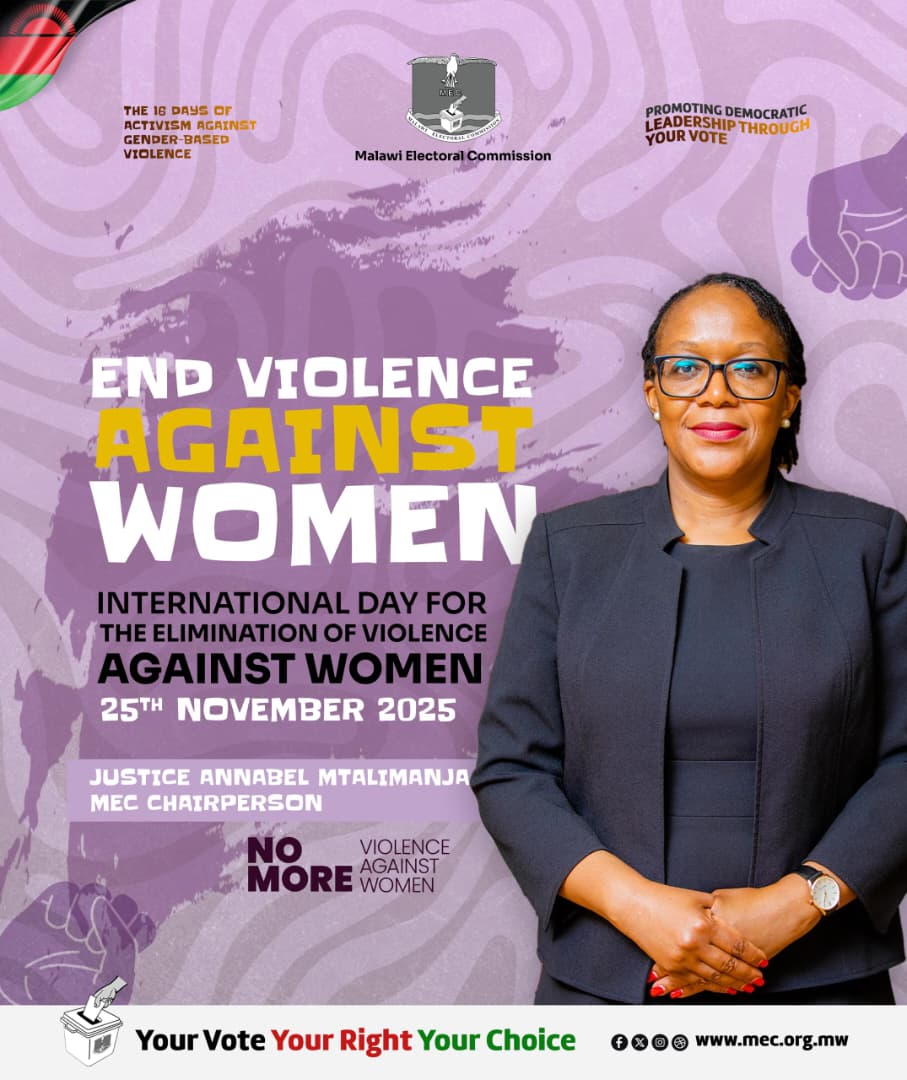
* Together, we stand for justice, safety, and respect for all persons—MEC chairperson, Justice Annabel Mtalimanja
* A society free from violence is within our reach when we choose justice over silence, respect over discrimination, and compassion over indifference
By Duncan Mlanjira
Malawi Electoral Commission (MEC) chairperson, Justice Annabel Mtalimanja, yesterday joined the world to amplify the commemoration of the International Day for the Elimination of Violence Against Women — with a message that the Commission “stands firmly in solidarity with all women and girls across the nation”.
The International Day for the Elimination of Violence Against Women also marked the beginning of the 16 Days of Activism Against Gender-Based Violence (GBV) — thus MEC has since rollled out daily reminders that “together, we stand for justice, safety, and respect for all persons”.
In her message yesterday, Justice Mtalimanja called upon “every citizen, institution, and leader to join this vital movement to speak out, stand up, and take meaningful action to safeguard the rights, dignity, and safety of all persons”.
“A society free from violence is within our reach when we choose justice over silence, respect over discrimination, and compassion over indifference.”
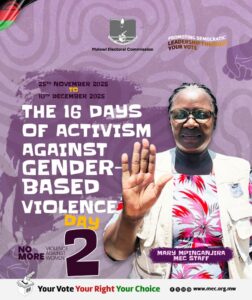
And just like MEC did by posting countdowns towards the date for September 16, 2025 General Election, the Commission is set to deliver messages of encouragement for participation, and today, amplified the voice of Mary Mpinganjira, standing in solidarity with all women and girls and all people across Malawi.
“Together, let us choose justice over silence, respect over discrimination, and compassion over indifference so that every home, community, and institution becomes a safe space for all persons.”
The 16 Days of Activism Against GBV is being celebrated under the theme;’ UNiTE to End Digital Violence against All Women and Girls’ and on its website, United Nations (UN) Women amplifies that it is the duty of everyone to act and stop digital abuse.
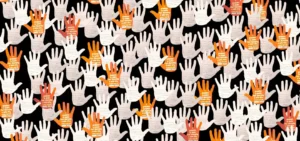
The 16 Days of Activism calls on:
* Governments to pass and enforce laws that criminalise digital violence, protect personal information and strengthen tech sector accountability;
* Tech companies to ensure platform safety, remove harmful content, enforce codes of conduct and publish transparent reports;
* Donors to invest in feminist organisations working to end violence against women and digital rights advocates; and
* Individuals to speak out, support survivors, and challenge harmful online norms.
The UN Women further calls on the world that from November 25 to December 10, to organise visible and bold activities to promote safety and justice online, just as MEC has rolled out.

Advertisement
The call goes to the civil society, youth-led groups, academia, local governments & community leaders and the private sector, saying: “You can take action in many ways – learn and share information from this year’s campaign, support local services that support survivors of gender-based violence and host or participate in digital safety sessions.”
The world is being encouraged to “support male-allyship campaigns that reject and prevent digital violence against women and girls, and encourage governments and companies to adopt better laws and policies”.
“Don’t forget to wear or display the colour orange — a symbol of hope and a future free from violence,” says UN Women, which highlights that violence against women and girls affects one in three women.
“It is a global human rights emergency that must stop. As the world marks the 30th anniversary of the Beijing Declaration and Platform for Action – one of the most progressive international agreements on women’s rights to date – the UN Secretary-General’s UNiTE 2025 campaign focuses on one of the fastest-growing forms of abuse: digital violence against women and girls.”
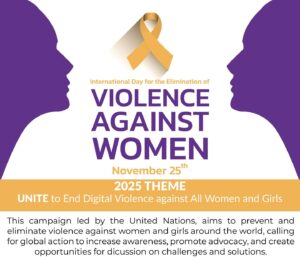
The theme — according to UN Women — is thus a reminder that digital safety is central to gender equality, and that while online and digital spaces is supposed to empower women and girls — “yet every day, for millions of women and girls, the digital world has become a minefield of harassment, abuse, and control”.
What is digital abuse?
Digital tools are increasingly being used to stalk, harass, and abuse women and girls, which includes:
* Image-based abuse/non-consensual sharing of intimate images – often called revenge porn or leaked nudes;
* Cyberbullying, trolling, online threats,online harassment and sexual harassment;
* AI-generated deepfakes such as sexually explicit images, deepfake pornography, and digitally manipulated images, videos or audio;
* Hate speech and disinformation on social media platforms and doxxing (publishing private information);
* Online stalking or surveillance/tracking to monitor someone’s activities and online grooming and sexual exploitation; and
* Catfishing & impersonation and misogynistic networks – e.g. manosphere, incel forums.

“These acts don’t just happen online,” explains UN Women. “They often lead to offline violence in real life (IRL), such as coercion, physical abuse, and even femicide – killing of women and girls.
“The harm can be long-lasting and affect survivors over a prolonged period of time. Digital violence targets women more than men, across all walks of life, but especially those with public or online visibility – such as activists, journalists, women in politics, human rights defenders, and young women.
“The impact is even worse for women facing intersecting forms of discrimination, including race, disability, gender identity, or sexual orientation.”
Why is digital abuse so hard to stop?
This includes weak regulation of the technology sector or lack of legal recognition of digital violence in countries; lack of accountability from tech platforms and social networking sites and normalisation of violence in manosphere spaces.
Artificial Intelligence (AI) is also creating new forms of abuse and amplifying digital violence while anonymity of perpetrators and cross-border abuse make it harder to get justice — as well limited support systems for survivors of cyberbullying or personal data leaks.

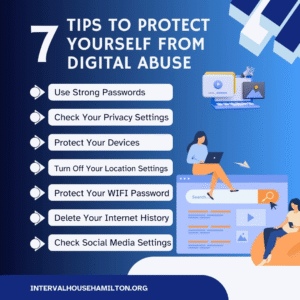
UN Women takes note that thanks to years of advocacy by feminist and digital rights movements — and the growing momentum for action by governments, the UN, and regional organisations — major progress has been made, which include:
* The 2024 Global Digital Compact, which set the first UN-wide standards for digital safety and AI governance;
* In December 2024, Member States adopted the UN Cybercrime Convention – the first legally binding international instrument with implications for addressing digital violence;
* The UN General Assembly adopted a resolution on Violence Against Women in Digital Environments in 2024, urging states to take immediate, effective action to prevent and eliminate digital violence and to strengthen regulation and accountability of platforms;
* In 2024, the UN Statistical Commission called for the development of global methods to measure technology-facilitated gender-based violence, with work now underway; and
* Regional bodies also acted – from the African Union’s Convention on Ending Violence against Women and Girls to the EU’s Digital Services Act.



Advertisement
